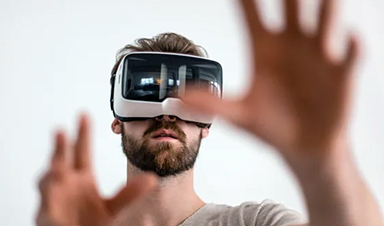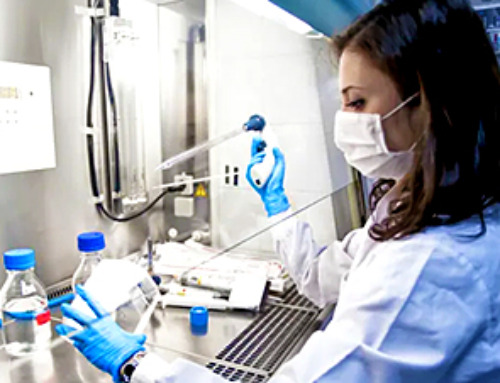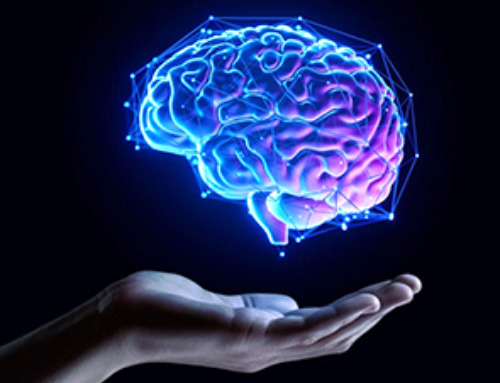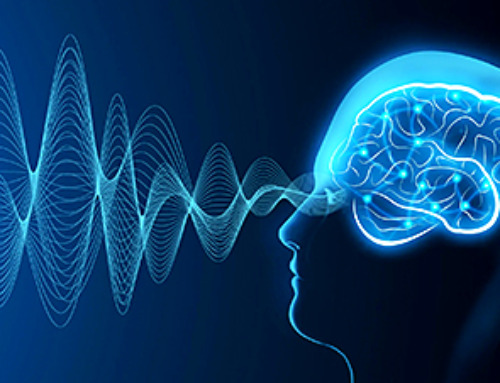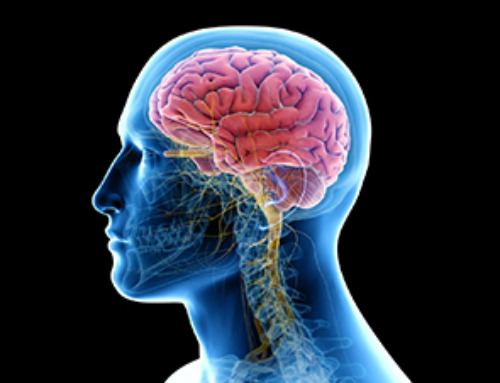A new era of neurotechnology means we may need new protections to safeguard our brain and mental experiences.
A last bastion of privacy, our brains have remained inviolate, even as sensors now record our heartbeats, breaths, steps and sleep. All that is about to change. An avalanche of brain-tracking devices—earbuds, headphones, headbands, watches and even wearable tattoos—will soon enter the market, promising to transform our lives. And threatening to breach the refuge of our minds.
Tech titans Meta, Snap, Microsoft and Apple are already investing heavily in brain wearables. They aim to embed brain sensors into smart watches, earbuds, headsets and sleep aids. Integrating them into our everyday lives could revolutionize health care, enabling early diagnosis and personalized treatment of conditions such as depression, epilepsy and even cognitive decline. Brain sensors could improve our ability to meditate, focus and even communicate with a seamless technological telepathy—using the power of thoughts and emotion to drive our interaction with augmented reality (AR) and virtual reality (VR) headsets, or even type on virtual keyboards with our minds.
But brain wearables also pose very real risks to mental privacy, freedom of thought and self-determination. As these devices proliferate, they will generate vast amounts of neural data, creating an intimate window into our brain states, emotions and even memories. We need the individual power to shutter this new view into our inner selves.
Employers already seek out such data, tracking worker fatigue levels and offering brain wellness programs to mitigate stress, via platforms that give them unprecedented access to employees’ brains. Cognitive and emotional testing based on neuroscience is becoming a new job screening norm, revealing personality aspects that may have little to do with a job. In China, train conductors of the Beijing-Shanghai line, the busiest of its kind in the world, wear brain sensors throughout their work day. There are even reports of Chinese employees being sent home if their brain activity shows less than stellar brain metrics. As companies embrace brain wearables that can track employees’ attention, focus and even boredom, without safeguards in place, they could trample on employee’s mental privacy, eroding trust and well-being along with the dignity of work itself.
Governments, too, are seeking access to our brains, with a U.S brain initiative seeking “‘every spike from every neuron’ in the human brain,” to reveal “how the firing of these neurons produced complex thoughts.” While aimed at the underlying causes of neurological and psychiatric conditions, this same investment could also enable government interference with freedom of thought—a freedom critical to human flourishing. From functional brain biometric programs under development to authenticate individuals—including those funded by the National Science Foundation at Binghamton University—to so-called brain-fingerprinting techniques used to interrogate criminal suspects—sold by companies like Brainwave Science and funded by law enforcement agencies from Singapore to Australia to the United Arab Emirates—we must act quickly to ensure neurotechnology benefits humanity rather than heralding an Orwellian future of spying on our brains.
The rush to hack the human brain veers from neuromarketing to the rabbit hole of social media and even to cognitive warfare programs designed to disable or disorient. These technologies should have our full attention. Neuromarketing campaigns such as one conducted by Frito-Lays used insights about how women’s brains could affect snacking decisions, then monitored brain activity while people viewed their newly designed advertisements, allowing them to fine-tune their campaigns to better capture attention and drive women to snack more on their products. Social media “like” buttons and notifications are features designed to draw us habitually back to platforms, exploiting our brains’ reward systems. Clickbait headlines and pseudoscience claims prey on our cognitive biases, hobbling critical thinking. And nations worldwide are considering possible military applications of neuroscience, which some planners call warfare’s “sixth domain” (adding to a list that includes land, sea, air, space and cyberspace).
As brain wearables and artificial intelligences advance, the line between human agency and machine intervention will also blur. When a wearable reshapes our thoughts and emotions, how much of our actions and decisions remain truly our own? As we begin to offload mental tasks to AI, we risk becoming overly dependent on technology, weakening independent thought and even our capacity for reflective decision-making. Should we allow AI to shape our brains and mental experiences? And how do we retain our humanity in an increasingly interconnected world remade by these two technologies?
Malicious use and even hacking of brain wearables is another threat. From probing for information, to intercepting our PIN numbers as we think or type them, neural cybersecurity will rule. Imagine a world where brain wearables can track what we read and see, alter perceptions, manipulate emotions or even trigger physical pain. That’s a world that may soon arrive. Already, companies including China’s Entertech have accumulated millions of raw EEG data recordings from individuals across the world using its popular consumer-based brain wearables, along with personal information and device and app usage by those individuals. Entertech makes plain in their privacy policy they also record personal information, GPS signals, device sensors, computers and services a person is using, including websites they may be visiting. We must ensure that brain wearables are designed with security in mind and with device and data safeguards in place to mitigate these risks.
We stand at an inflection point in the beginning of a brain wearable revolution. We need prudent vigilance and an open and honest debate about the risks and benefits of neurotechnology, to ensure it is used responsibly and ethically. With the right safeguards, neurotechnology could be truly empowering for individuals. To get there will require we recognize new digital age rights to preserve our cognitive liberty—self-determination over our brains and mental experiences. We must do so now, before the choice is no longer ours to make.
This is an opinion and analysis article, and the views expressed by the author or authors are not necessarily those of Scientific American.
News
COVID-19 viral fragments shown to target and kill specific immune cells
COVID-19 viral fragments shown to target and kill specific immune cells in UCLA-led study Clues about extreme cases and omicron’s effects come from a cross-disciplinary international research team New research shows that after the [...]
Smaller Than a Grain of Salt: Engineers Create the World’s Tiniest Wireless Brain Implant
A salt-grain-sized neural implant can record and transmit brain activity wirelessly for extended periods. Researchers at Cornell University, working with collaborators, have created an extremely small neural implant that can sit on a grain of [...]
Scientists Develop a New Way To See Inside the Human Body Using 3D Color Imaging
A newly developed imaging method blends ultrasound and photoacoustics to capture both tissue structure and blood-vessel function in 3D. By blending two powerful imaging methods, researchers from Caltech and USC have developed a new way to [...]
Brain waves could help paralyzed patients move again
People with spinal cord injuries often lose the ability to move their arms or legs. In many cases, the nerves in the limbs remain healthy, and the brain continues to function normally. The loss of [...]
Scientists Discover a New “Cleanup Hub” Inside the Human Brain
A newly identified lymphatic drainage pathway along the middle meningeal artery reveals how the human brain clears waste. How does the brain clear away waste? This task is handled by the brain’s lymphatic drainage [...]
New Drug Slashes Dangerous Blood Fats by Nearly 40% in First Human Trial
Scientists have found a way to fine-tune a central fat-control pathway in the liver, reducing harmful blood triglycerides while preserving beneficial cholesterol functions. When we eat, the body turns surplus calories into molecules called [...]
A Simple Brain Scan May Help Restore Movement After Paralysis
A brain cap and smart algorithms may one day help paralyzed patients turn thought into movement—no surgery required. People with spinal cord injuries often experience partial or complete loss of movement in their arms [...]
Plant Discovery Could Transform How Medicines Are Made
Scientists have uncovered an unexpected way plants make powerful chemicals, revealing hidden biological connections that could transform how medicines are discovered and produced. Plants produce protective chemicals called alkaloids as part of their natural [...]
Scientists Develop IV Therapy That Repairs the Brain After Stroke
New nanomaterial passes the blood-brain barrier to reduce damaging inflammation after the most common form of stroke. When someone experiences a stroke, doctors must quickly restore blood flow to the brain to prevent death. [...]
Analyzing Darwin’s specimens without opening 200-year-old jars
Scientists have successfully analyzed Charles Darwin's original specimens from his HMS Beagle voyage (1831 to 1836) to the Galapagos Islands. Remarkably, the specimens have been analyzed without opening their 200-year-old preservation jars. Examining 46 [...]
Scientists discover natural ‘brake’ that could stop harmful inflammation
Researchers at University College London (UCL) have uncovered a key mechanism that helps the body switch off inflammation—a breakthrough that could lead to new treatments for chronic diseases affecting millions worldwide. Inflammation is the [...]
A Forgotten Molecule Could Revive Failing Antifungal Drugs and Save Millions of Lives
Scientists have uncovered a way to make existing antifungal drugs work again against deadly, drug-resistant fungi. Fungal infections claim millions of lives worldwide each year, and current medical treatments are failing to keep pace. [...]
Scientists Trap Thyme’s Healing Power in Tiny Capsules
A new micro-encapsulation breakthrough could turn thyme’s powerful health benefits into safer, smarter nanodoses. Thyme extract is often praised for its wide range of health benefits, giving it a reputation as a natural medicinal [...]
Scientists Develop Spray-On Powder That Instantly Seals Life-Threatening Wounds
KAIST scientists have created a fast-acting, stable powder hemostat that stops bleeding in one second and could significantly improve survival in combat and emergency medicine. Severe blood loss remains the primary cause of death from [...]
Oceans Are Struggling To Absorb Carbon As Microplastics Flood Their Waters
New research points to an unexpected way plastic pollution may be influencing Earth’s climate system. A recent study suggests that microscopic plastic pollution is reducing the ocean’s capacity to take in carbon dioxide, a [...]
Molecular Manufacturing: The Future of Nanomedicine – New book from Frank Boehm
This book explores the revolutionary potential of atomically precise manufacturing technologies to transform global healthcare, as well as practically every other sector across society. This forward-thinking volume examines how envisaged Factory@Home systems might enable the cost-effective [...]
